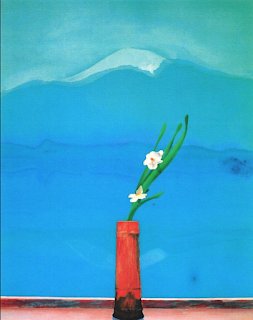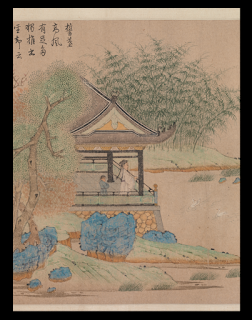We Have a Beautiful Mother
We have a beautiful
mother
Her hills
are buffaloes
Her buffaloes
hills.
mother
He oceans
are wombs
her wombs
oceans.
We have a beautiful
mother
Her teeth
the white stones
at the edge
of the water
the summer
grasses
her plentiful
hair.
We have a beautiful
mother
Her green lap immense
Her brown embrace
eternal
Her blue body
everything we know.
Her Blue Body
Everything We Know
Mother Earth: Through the Eyes of Women Photographers and Writers, Edited by Judith Boice, Random House, 1992.
Most of us recognize the name Alice Walker, (1943-) the writer who was the eighth child of Georgia sharecroppers. While growing up she was accidentally blinded in one eye, and her mother gave her a typewriter, allowing her to write instead of doing chores. She received a scholarship to attend Spelman College, where she studied for two years before transferring to Sarah Lawrence College. After graduating in 1965, Walker moved to Mississippi and became involved in the civil rights movement. She also began teaching and publishing short stories and essays. Probably her most famous work is The Color Purple. If you click on her name above you are connected to her blog, a rather eclectic gathering of current events, ideas and original work. I love this piece that she wrote recently--I'll post the beginning here, the rest is available at her blog:
Anybody who despises elephants except for their tusks
is not from here.
Anybody who decapitates mountains
is not from here.
Anybody who assassinates
rivers, oceans,
and the air,
is not from here.
Anybody who “disappears” continents
of buffalo
and foxes, turtles and rain forests
oil, gold, diamonds
and sandalwood
is not from here.
You can sleep on
if you like.
But this is the easiest way
to tell
who is not Earthling....
Most of us recognize the name Alice Walker, (1943-) the writer who was the eighth child of Georgia sharecroppers. While growing up she was accidentally blinded in one eye, and her mother gave her a typewriter, allowing her to write instead of doing chores. She received a scholarship to attend Spelman College, where she studied for two years before transferring to Sarah Lawrence College. After graduating in 1965, Walker moved to Mississippi and became involved in the civil rights movement. She also began teaching and publishing short stories and essays. Probably her most famous work is The Color Purple. If you click on her name above you are connected to her blog, a rather eclectic gathering of current events, ideas and original work. I love this piece that she wrote recently--I'll post the beginning here, the rest is available at her blog:
Anybody who despises elephants except for their tusks
is not from here.
Anybody who decapitates mountains
is not from here.
Anybody who assassinates
rivers, oceans,
and the air,
is not from here.
Anybody who “disappears” continents
of buffalo
and foxes, turtles and rain forests
oil, gold, diamonds
and sandalwood
is not from here.
You can sleep on
if you like.
But this is the easiest way
to tell
who is not Earthling....
You can see the woman essence she embodies in her words...the deep connections of feminine creativity and nurture, the circle of life that invites everyone in, who unselfishly gives. Our beautiful Mother can forgive us, if only we can recognize the harm that we are doing and return her embrace.
I dedicate today's poem to my forever friend, Mary O'Neil Hemmesch, the epitome of loving mother on her birthday.

















